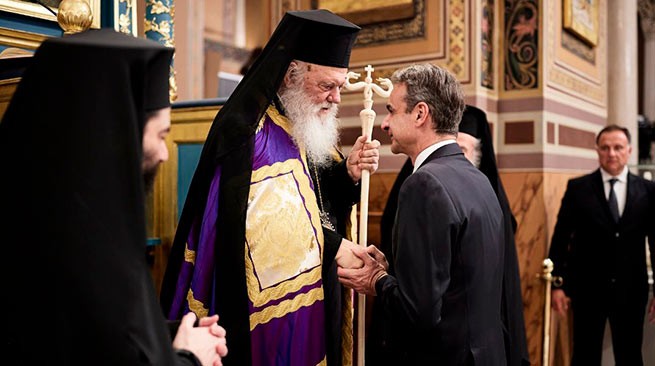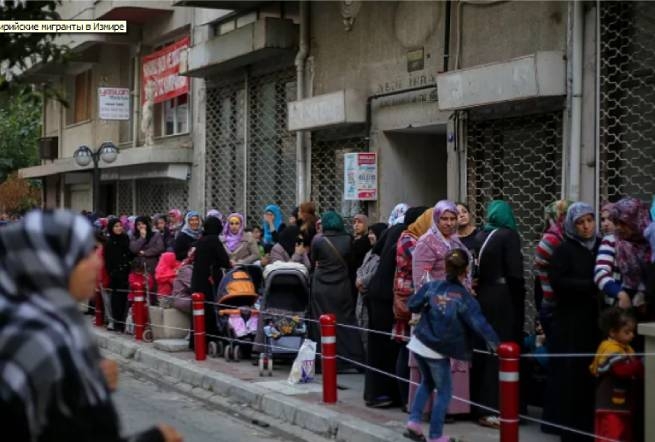Polls show that with the increase in the number of migrants in Turkey, anti-migrant sentiment is also growing. Therefore, immigration issues have become a hot topic in the elections, they may have consequences for the European Union.
A little more than a month is left before the elections, which will be held on May 14. Assuming that the opposition may well win them, the question arises: what, in this case, awaits an agreement between Turkey and EU by migrants?
The country’s migrant crisis is seen as critical for both the public and political parties vying for power. The last ten years have been marked by an influx of people fleeing the war in Syria. Many moved on to European countries, but millions settled in Turkey. According to official data, as of March 2023, there are 3,447,837 Syrian refugees in the country with temporary protection status.
The opposition bloc “National Alliance” promises to send two million of them to their homeland within 2 years, hoping in this way to get votes. Turkish President Recep Tayyip Erdogan, who is constantly under fire from his supporters over his migration policy, is trying to reassure both sides. Last year, he said the government was working on a migrant return scheme, aiming to send back 1 million Syrians voluntarily. But just a few days after that announcement, he admitted:
“We will never expel them from this earth. Our doors are wide open. We will continue to host them, and not throw them on their knees before the killers.”
However, five months before the election, Erdogan reiterated that more than half a million Syrians had decided to return home, saying voluntary return was “accelerating.”
Recall that in 2016 a deal on refugees was concluded between the EU and Turkey, the purpose of which is to stop the influx of migrants by sending people who came to Greece illegally back to Turkey. For every Syrian returned, there is another resettled in the EU. In return, Brussels promised to provide Ankara with 6 billion euros to accommodate the Syrians and liberalize the visa regime for Turkish citizens.
Professor Kemal Kirishci of the Brookings Institution’s Turkey Project said the deal was “absolutely successful” for the European Union, although he expressed doubt that such an agreement could be struck in the future. Kirisci notes that the most realistic and realistic solution for Turkey would not be to expel the refugees, but to use them to rebuild after the devastating February earthquake. He draws attention to the UN offer to the EU and the West to give Turkey trade incentives if it creates sustainable jobs for Syrian refugees and local residents. Commenting on and noting Syrians’ support for this proposal, Professor Kirishchi says:
“This will reduce the dependence of Syrian refugees on humanitarian aid, help mitigate popular discontent and reduce the prospects for relocation. Until last year, Syrian refugees increasingly felt integrated into Turkish society. But growing public discontent has led refugees to now doubt their presence and acceptance, which makes them want to leave.”
In recent years, anti-Syrian sentiment has intensified in the country, at the same time, the country’s economy is in a recession. In 2017, only about 32% of Syrians wanted to settle in a third country, in 2021 this number increased to 64%.
However, Kirisci argues, migrants are unlikely to be a top priority for the new government, which will deal with more pressing issues such as the economy. Therefore, regardless of the election results, migration is likely to remain a sensitive issue for many years to come.
An expert on migration and borders at Kadir Has University, Professor Sibel Karadag says:
“The deportation and return of migrants has long been a hot topic. Western countries deport migrants to neighboring states, and neighbors send them to their countries of origin.”
She pointed to Turkey’s official policy of thinning and stripping, where migrants are sent back to Turkish-controlled areas of northern Syria as part of the “Voluntary Return” program. Karadag believes that this policy will continue. But perhaps deeper changes are brewing.
The opposition bloc, during its election campaign, outlined ways to solve the crisis with migrants in Turkey in four stages. First of all, he wants to try to make peace with the country’s neighbors and “sit down at the negotiating table” with the Syrian government.
The president’s party has not yet announced its election manifesto. But the head of state’s desire to negotiate with Syria and efforts to resettle Syrians are key elements of the campaign.
For both experts, making peace with Damascus is not possible as long as Ankara keeps its troops in northern Syria. According to Karadag, migration and border management will remain key issues in EU-Turkey relations:
“The EU has sought to take the issue outside of Turkey as part of its broader global approach to migration control, and Turkey has turned it into a multilateral bargaining tool. Ankara has used the ‘threat’ of opening its border to bargain for ‘more financial support or tacit political tolerance’. to the regime.
In 2019, the Turkish president sent thousands of migrants to the Greek border, warning that there would be more if there was no international support and the EU continued to criticize his military intervention in Syria. The Greek police prevented anyone from crossing the border, and violent clashes broke out there.
Karadag believes writes Euronews that if Ankara tries to return its migrants en masse, we may see similar scenes again, although the situation on the Turkish-Greek border is already tough, and the Greek security forces are constantly pushing back. The expert summarizes:
“The first priority of the new government should be to build a critical and strong diplomacy based on human rights principles against EU migration and border policies. It should pursue a policy that puts human dignity at the forefront.”







More Stories
UK: controversial bill on deportation of migrants to Rwanda passed
Chaos in Paris due to Afghan demonstration
Why only a few Ukrainian refugees in Germany found work (video)